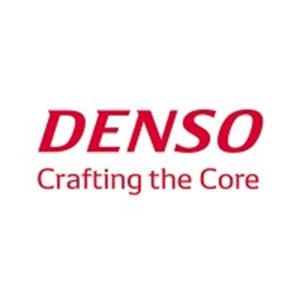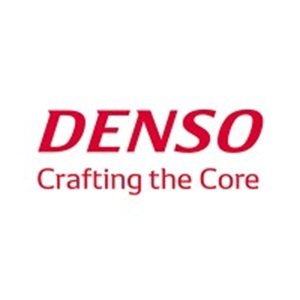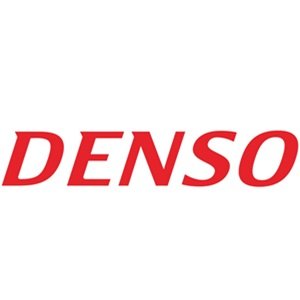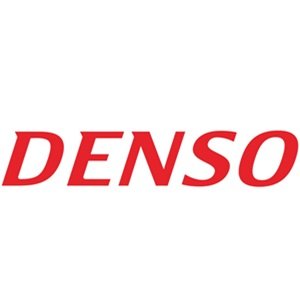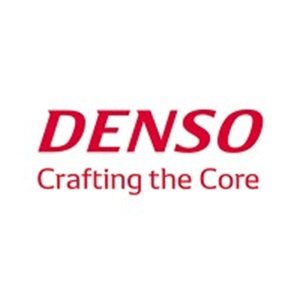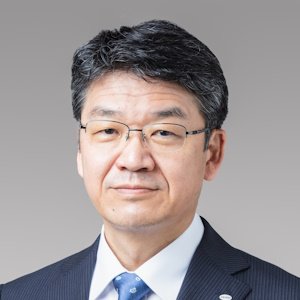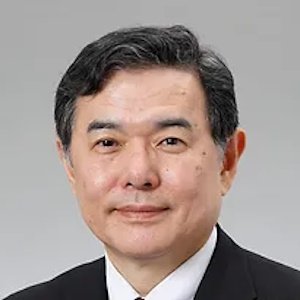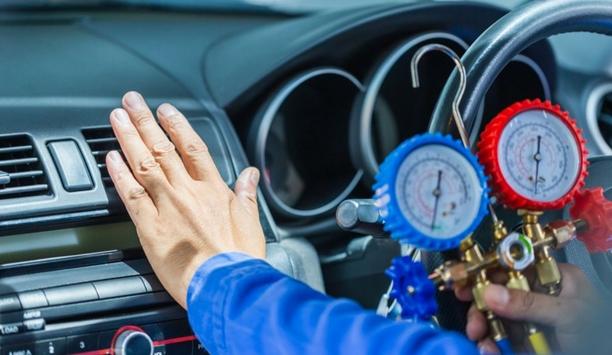Denso Corporation - Experts & Thought Leaders
Latest Denso Corporation news & announcements
DENSO CORPORATION announced that DENSO Group employees won the gold medal for the "Industrial Mechanics" (representing Japan), silver medal for the "Manufacturing Team Challenge" (representing Japan), "CNC Turning" (representing Thailand), and bronze medal for the "CNC Milling" (representing Vietnam) at the 47th WorldSkills Competition 2024, held Sept. 10-15 in Lyon, France. WorldSkills International Competition DENSO Group sent twenty entrants to the event to compete in eleven skills. Eleven entrants represented Japan in seven skill areas, three entrants represented Thailand in two skill areas, two entrants represented Vietnam in two skill areas, one entrant represented Indonesia in one skill area, two entrants represented Mexico in two skill areas and one entrant represented the U.S. in one skill area. DENSO first entered the WorldSkills International Competition at the 20th event in 1971 and has won a total of 81 medals to date: 35 golds, 25 silvers, and 21 bronzes. DENSO has won its 17th straight gold medal since the 31st contest in 1991. practical applications DENSO considers the development of technology, sophisticated engineering skills, and know-how to turn technology into practical applications to be two of the most fundamental components of its monozukuri and the art of making things. Through participation in the WorldSkills Competition, DENSO will continue to develop the mental, technical, and physical of young technicians, foster them to become the highly skilled ones of the next generation, and pass on their skills.
DENSO Corporation announced it has decided to transfer all its shares in NiPPA Co., Ltd. (NiPPA), a DENSO group company, to a special purpose company called NiPPA Holdings. NiPPA Holdings’ entire stake is held by a fund operated by Nippon Mirai Holdings Co., Ltd. (NMC). The transfer of all shares of NiPPA held by DENSO (effective September 30, 2024) and the conversion of NiPPA into a wholly owned subsidiary by NiPPA Holdings (effective October 1, 2024) were resolved at NiPPA’s shareholders meeting. NiPPA Since its founding in 1936, NiPPA has operated as Nihon Pakkin Manufacturing Co., Ltd., with its main businesses being complex precision stamping, insert molding, and radiator cap manufacturing. Since DENSO’s equity participation in 1992, NiPPA, which excels at manufacturing high-precision parts and possesses strong engineering capabilities, has refined its technologies, enhanced its competitiveness, and grown through joint development of different thickness drawing and other technologies. sustainable business growth DENSO decided to transfer its NiPPA shares to better promote NiPPA’s expansion into non-automotive fields Amid changes in the business environment, such as the spread of electrification and advances in autonomous driving technology, DENSO and NiPPA have examined how they can continue to create social value and sustainable business growth. DENSO decided to transfer its NiPPA shares to better promote NiPPA’s expansion into non-automotive fields. supply chain The move allows NiPPA to leverage the technologies and skills acquired by NiPPA under NMC, which has extensive experience in supporting growth strategies of the manufacturing industry, thus enabling NiPPA to continue sustainable growth.DENSO will continue to reform its business portfolio and contribute to the further development of the mobility society by actively working to maintain and strengthen its supply chain while taking into account the future business plans of its business partners.
DENSO CORPORATION announced that it will build a new plant by expanding the site of the Zenmyo Plant in Nishio City, Aichi Prefecture. Construction will start in the first half of FY2025 and will be completed in January 2027, with production slated to start in the first half of FY2028. The total investment will be about 69 billion yen. Automotive Business DENSO has been expanding the value that it offers in the “green” and “peace of mind” domains DENSO has been expanding the value that it offers in the “green” and “peace of mind” domains based on technologies refined in the automotive business as the core. To evolve from a “Tier 1 supplier that supports the auto industry” to a “Tier 1 supplier that supports a mobility-centered society,” DENSO has been working on three challenges: “evolution of mobility,” “creation of new value,” and “strengthening of fundamental technologies.” Advancement of SDVs Software, which is part of “strengthening of fundamental technologies,” is embedded in electronic control units (ECUs), which control electrification products and ADAS products, and plays a key role. Software will keep growing with the advancement of software-defined vehicles (SDVs) and electrification, and large-scale integrated ECUs will be required for overall control of vehicle functions. DENSO’s next-generation plant The new plant is the first to contain DENSO’s next-generation plant concept from the planning The new plant will feature a production system that can quickly respond to market expansion and customers’ needs in the future by mainly manufacturing large-scale integrated ECUs. The new plant will be the first to incorporate DENSO’s next-generation plant concept from the planning phase. digital infrastructure technology The plant will realize a creative workstyle based on digital infrastructure and automation technology, which will be deployed across the plant. It will also be capable of 24-hour unmanned operation, significantly improving production efficiency. Further, the aim is to build an environmentally friendly carbon-neutral plant by utilizing private power generation, which will use solar panels and hydrogen. Features of the next-generation plant Flexible production system Products will be standardized by using common materials and components of products. Diverse products will be produced on a single line in combination with production lines that enable equipment to be easily recombined, thus quickly and flexibly handling changes in the types and quantities of products. The components and units of the production equipment will be standardized. The processing programs will also be standardized, and software compatibility will be enhanced to significantly reduce the lead time for production preparation. 24-hour unmanned operation The equipment and the flow of goods will be constantly monitored by cameras and sensors in the plant. When signs of equipment failure are detected, the situation will be judged remotely and action will be taken before the equipment fails, enabling production lines to run non-stop. In addition to the production lines, the entire process, including unloading of materials and components, transfer within the plant, replenishment and feeding of materials, and packing of products for shipment will be automated to realize unmanned operation. Shifting to a workstyle that takes full advantage of digital solutions The plant will be reproduced virtually by using digital twin technology. Equipment verification and kaizen simulations will help build an efficient and streamlined production system. The on-site know-how accumulated through manufacturing operations will be turned into explicit knowledge, and a database will be created so that the knowledge is available to anyone. The database will be used to increase automation, perform the kaizen cycle quickly, and facilitate the evolution of manufacturing. DENSO will continue to address social challenges, such as the declining labor force and environmental concerns, through innovative manufacturing methods, thereby fostering a sense of security and well-being for everyone.
Insights & Opinions from thought leaders at Denso Corporation
Automotive HVAC is a heating, ventilation, and air conditioning system installed in automobiles, such as passenger cars, pickup trucks, and heavy-duty trucks. Like other air conditioning systems, automotive HVAC cools the air by transforming the refrigerant into a liquid or gas. The heating process, on the other hand, is characteristic of automotive HVAC as it uses the heat created by the engine. HVAC systems in the automotive The adoption of heating, ventilation, and air conditioning (HVAC) systems in the automotive sector has been a revolutionary step in advancing automotive technology and efficiency. It has become one of the key elements in the automobile industry, given higher temperature control needs due to recent climate changes, higher consumer interest in air purification, and higher efficiency requirements fueled by the growing adoption of electric vehicles. future growth prospects Projections forecast a potential worth of $86.1 billion by 2031, driven by a significant CAGR of 5.4% Recent insights from Meticulous Research offer a glimpse of the future growth prospects of the Automotive HVAC Market. Projections forecast a potential worth of $86.1 billion by 2031, driven by a significant Compound Annual Growth Rate (CAGR) of 5.4% from 2024 to 2031. Components of Automotive HVAC Automotive HVAC consists of the following main components: Compressor (Compressing refrigerant) Condenser (Cooling refrigerant) Receiver dryer (Removes impurities and moisture from refrigerant) Expansion valve Evaporator (Cools the air) Blower (Releases the air) Thermostat (Regulates temperature) Actuator (Switches air direction) Increasing Demand for Thermal Systems Features An HVAC system is equipped with air filtration and purification components that help remove pollutants Automotive manufacturers are developing HVAC systems that play a crucial role in providing comfort and managing the overall environment of the vehicles. There is a growing adoption of HVAC systems that help regulate the temperature inside the vehicle cabin, ensuring passenger comfort regardless of external weather conditions. These systems can heat the cabin during cold weather and cool it down during hot weather, providing a comfortable driving experience. Moreover, the HVAC system is equipped with air filtration and purification components that help remove pollutants, allergens, and odors from the cabin air. Compact, intelligent, and flexible solution With the increasing demand for thermal system features in vehicles, several companies are launching HVAC systems. For instance, in March 2023, SIROCO HVAC (France), an international provider of thermal and electrical solutions for industrial vehicles, launched its new 12-24V CAN/LIN bus HVAC electronic controller. This controller is a compact, intelligent, and flexible solution to manage thermal systems. With component diagnostics, short-circuit protection and a safe start-up charger, the controller offers a complete and configurable solution for HVAC components and vehicle thermal management. Rising Adoption of Electric Vehicles According to the International Energy Agency (France), electric car sales in 2023 were 3.5 million higher than in 2022, a 35% year-on-year increase. This is more than six times higher than in 2018, just 5 years earlier. An electric vehicle's range is strongly influenced by temperature, the battery type, and what HVAC loads are required to bring the cabin to comfort. Heating and cooling HVAC systems in an electric vehicle enhance energy efficiency and contribute to overall driving comfort Heating and cooling are some of the most significant contributors to range reduction. HVAC systems in an electric vehicle enhance energy efficiency and contribute to overall driving comfort and performance. Electric cars benefit from rapid cabin heating or hot air cooling due to the electric compressor's instantaneous response. This feature improves driver and passenger comfort, particularly in extreme weather conditions. Due to all such benefits, the adoption of HVAC systems in electric vehicles is increasing rapidly. Integrate HVAC systems Furthermore, the rising focus of automotive manufacturers to integrate HVAC systems in their electric vehicles for enhanced passenger comfort is expected to increase the demand for automotive HVAC systems. For instance, in May 2021, Panasonic Holdings Corporation (Japan) revealed that its Nanoe X technology will be used by Jaguar Land Rover (U.K.) in its future vehicle heating, ventilation, and air-conditioning (HVAC) systems. Nanoe technology is currently being used in the entire Jaguar range, including the all-electric Jaguar I-Pace performance SUV, and in the Land Rover lineup, including the Discovery and Range Rover Evoque. User-friendly climate control In addition, several automakers are focused on improving HVAC efficiency in their vehicles. For instance, in April 2023, Kia (South Korea) announced that the Kia EV9 underwent testing to optimize heating, ventilation, and air conditioning (HVAC). The thermal system of the Kia EV9 includes a heat pump, climate control system, and defrost and de-icing features. In addition, a new, user-friendly climate control panel and improved roof vents offer customers maximum comfort and convenience. Integrating Automatic Climate Control Systems in Vehicles Automatic climate control in cars is an advanced system that enables independent regulation of cabin temperature Automatic climate control in cars is an advanced system that enables independent regulation of cabin temperature and humidity. By controlling the airflow, distribution, and temperature inside the vehicle, it offers personalized comfort. It operates autonomously and ensures optimal conditions for passengers while eliminating any fogging on the windows or the windshield. This technology is prevalent in most mid-range cars. It enhances the driving experience by allowing individual temperature settings and automatic adjustments of the fan speed and air circulation. Air conditioner in a car Earlier, the air conditioner in a car was considered one of the biggest features. Today, air conditioners have become standard equipment, even in entry-level automobiles. The desire for comfort and luxury has led to the development of climate control systems inside an automobile. Several automotive manufacturers are adding climate control features to their vehicles. For instance, in April 2024, Mahindra & Mahindra (India) launched the much-anticipated Mahindra XUV 3XO in the Indian market with updated design, features, and safety enhancements. The XUV 3XO introduces several first-in-segment features, including Climate Control. Automotive HVAC Market: Key Companies Some of the key players operating in the automotive HVAC market are Johnson Electric Group (Hong Kong), MAHLE GmbH (A Subsidiary of Mahle Stiftung GmbH) (Germany), Sensata Technologies, Inc. (U.S.), DENSO Corporation (Japan), Hanon Systems (South Korea), Valeo Service SAS (France), Air International Thermal Systems, Inc. (U.S.), Sanden Corporation (Japan), Brose Fahrzeugteile SE & Co. KG (Germany), Keihin North America, Inc. (U.S.), Mitsubishi Heavy Industries, Ltd. (Japan), OMEGA Environmental Technologies (U.S.), Kongsberg Automotive ASA (Norway), and Gentherm Inc. (U.S.). The automotive HVAC market has witnessed various product portfolios, geographic presence, and key growth strategies adopted in the last three to four years, comprehended in the report by Meticulous Research. High Market Growth Anticipated in the Asia-Pacific Region Asia-Pacific is expected to register the highest CAGR of 6.5% of the global automotive HVAC market The Asia-Pacific market is probably going to observe huge development in the automotive HVAC market. According to recent market analyses of the Automotive HVAC Market, in 2024, Asia-Pacific is expected to register the highest CAGR of 6.5% of the global automotive HVAC market. The increasing demand for passenger vehicles in India, China, and other countries in the Asia-Pacific region, the rising demand for energy-efficient HVAC systems across several automotive manufacturers, growing preferences for passenger comfort and safety, rising automobile production, rising disposable incomes, and growing efforts by market players to launch innovative products is boosting the market growth. Developments from Key Industry Players in Asia-Pacific In September 2023, DENSO Corporation (Japan) launched Everycool, an advanced cooling system that provides comfort and energy efficiency when a commercial vehicle’s engine is off. It can also be used when a truck's engine is not running. Everycool achieves the dual objective of improving driver working conditions during hot summer seasons, reducing environmental impact, and promoting efficient energy utilization by lowering fuel consumption. In March 2022, Hanon Systems (South Korea) announced a plan to build a new plant in Hubei, China, where the company will start producing HVAC modules and other products for electric vehicles (EVs) in early 2023. Automotive HVAC: Key Takeaways and Future Outlook The automotive HVAC market is in the midst of a revolutionary transformation driven by technological innovation, environmental consciousness, and the changing landscape of the automotive industry. As automakers strive to meet consumer demands for greener, more efficient, and technologically advanced vehicles, the automotive HVAC market stands at the forefront of innovation, contributing to a cooler, cleaner, and more comfortable driving experience. This comprehensive overview of the Automotive HVAC Market from Meticulous Research provides a valuable perspective on the evolving landscape and its future directions.
Leveraging Radiant And Hydronics To Help Achieve Decarbonization Goals
DownloadSealed Connectors In Harsh Environments
DownloadPowering And Cooling Next Generation Data Centers
DownloadDebunking Myths To Promote A Bright Future For Heat Pumps
DownloadOptimizing Comfort: The Ultimate HVAC Component Guide
Download